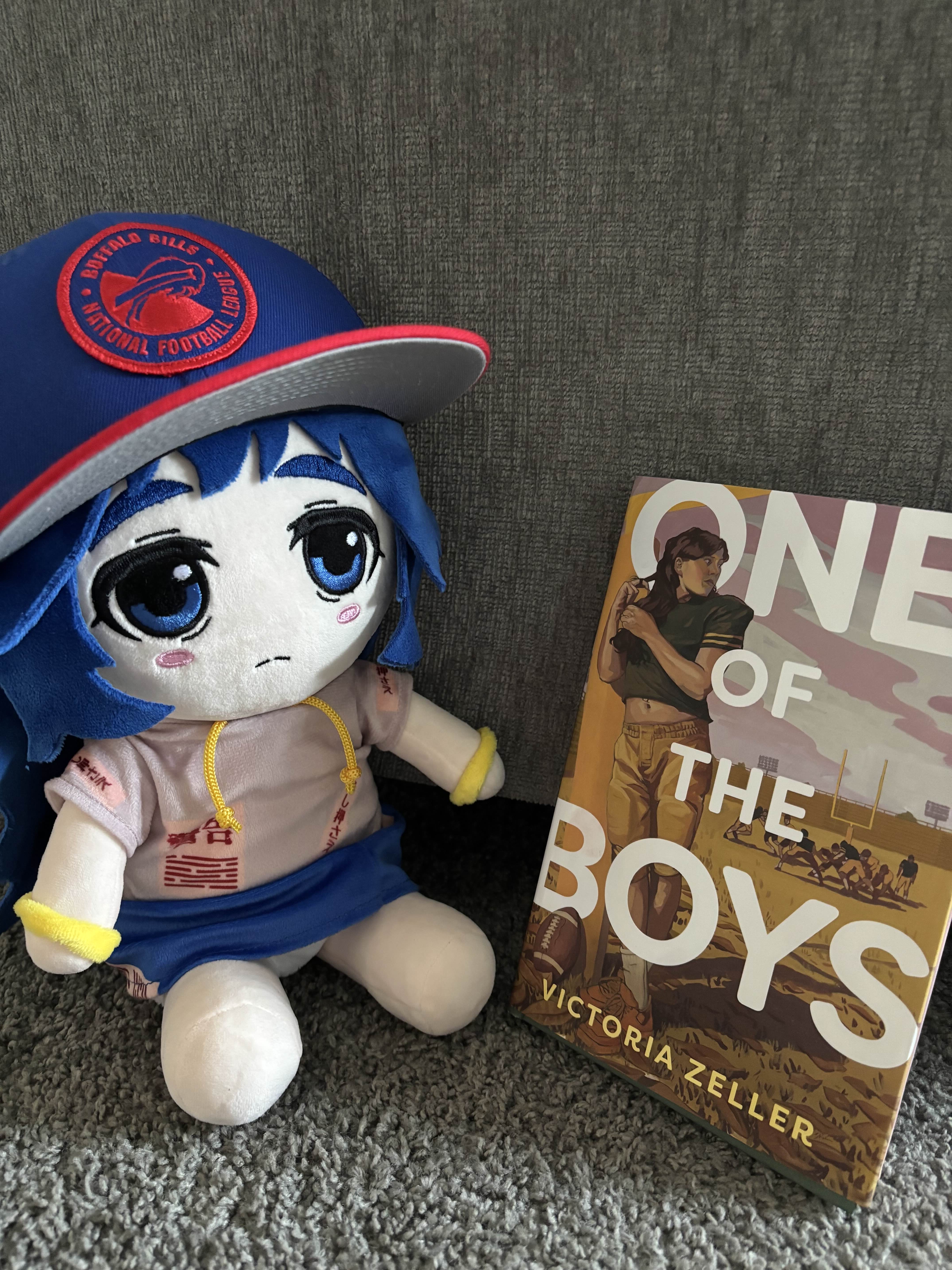There are a handful of events in the book which read as much-appreciated fillibusters about trans issues that often go underlooked. I appreciate Grace's continued antagonism towards the "identify as" language; culminating in her internal monologue when being asked what she identifies as at a party she attends at Saxon Valley being "I don't identify as anything; I'm a fucking girl". My personal objection towards "identifying as [X]" is rooted in the framework making it sound like trans existence is subjective; that what we are is up for debate. "Trans women are women" and its analogues for other genders are effective slogans because they assert that our existence is NOT up for debate.
One subplot I kept an eye on throughout the book was Grace having to deal with a teammate, McReynolds, going out of his way to lob juvenile transmisogyny at Grace. This culminates in McReynolds "commending" Grace for not fitting his preconcieved notion of what a trans woman is like without ever challenging why said notion is manufactured and wrong in the first place. This shows that knowlingly interacting with trans people and seeing that we're just trying to live our lives isn't a panacea for transphobia. Fixing your heart is something that must be actively pursued, and McReynolds is clearly not committed to doing so.
The protest scene immediately became a go-to example of demonstrating the strategy of solidarity.
Grace's position as the first trans woman to ever play organized football is wholly unprecedented. She herself comments that there is no roadmap for the journey that she is embarking on. These lines got the gears turning in my mind regarding current events.
It is often pointed out that modern transphobia is built on the repackaging of other forms of bigotry. The push to ban trans people from participating in organized sports teams that match our gender is no different, echoing the color barrier that existed in sports leagues for much of the last century. Both are part motivated by fear of an out-group besting an in-group at their own game, part motivated by recognizing that organized sports have always been a culture war battleground that could be parlayed into erasing the out-group from society as a whole. There are even some very confused attempts at "allyship" that amount to wanting to recreate the Negro Leagues but for trans people.
As opposed to opposing the trans athlete ban as a matter of principle, some like to qualify their opposition based on the fact that these bans target a "very small group of people' who "all suck at their sports". I reject these notions, and Grace does too. Hear it from her:
Fuckin' evil. It needs to change. The way I look at it is: if I exist, there's no way I'm the only one. There's gotta be tons of us out there, way more than you'd think. So hang in there.
She is 100% right here. I like to circle around back to the graph showing left-handedness over time. Being left-handed is an ordinary aspect of being human that has always existed. Once society at large stopped forcing people to write with their right hand, left-handed people were free to be themselves. It should be no surprise that everything that can be said about left-handed people can apply to queer people.
Keep fighting the fight for trans acceptance. The world of sports will continue to be a particularly important battleground for this fight. I would LOVE to see a landscape where the rate of trans participation in youth sports matches or exceeded the total percentage of trans youth. Similarly, I believe that one day, there WILL be a transgender Jackie Robinson equivalent to break the glass ceiling for trans people in professional sports.
